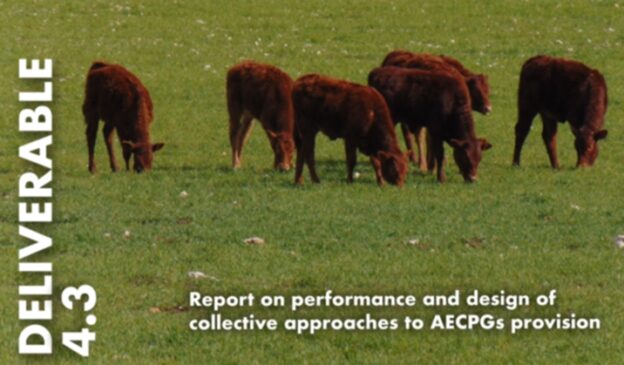D’Alberto, R., Raggi, M., Viaggi, D. (UNIBO) Hamunen, K., Tarvainen, O., Haltia, E. (LUKE)
Contributors:
- D’Alberto, R. (UNIBO) (2.4.1)
- Raggi, M. (UNIBO) (3.1.1)
- Eichhorn, T., Kantelhardt, J., Schaller, L. (BOKU) (2.4.3, 3.1.3) Todorova, K., Nikolov, D. (IAE) (2.4.4)
- Runge, T. (TI) (2.4.5)
- Blanco-Velázquez, F.J., González-Peñaloza, F.A., Anaya- Romero, M. (EVENOR) (2.4.6)
- Le-Gloux, F. (INRAE) (2.4.7, 3.1.4)
- Bradfield, T. (UCC) (2.4.8)
- Vergamini, D., Andreoli, M., Olivieri, M. (UNIPI) (2.4.9, 3.1.5) Bartolini, F., (UNIFE) (2.4.9, 3.1.5)
- ZSA (2.4.10)
Summary
1.1 Scope of Task 3.2
Title of Task 3.2 is Pan-EU survey of farmers and other rural landowners. The task, through a questionnaire, aims at identifying the acceptance and the farmers/forest owners’ behaviour towards the contract solutions proposed in WP1 from the potential contractors. The task also benefits of insights from WP2 and Task 3.1. The survey has been designed to tackle different target groups of farmers in the 12 countries involved in the project. The target sample size of the surveys is in the range between 100 and 300 farmers, forest owners, or landowners (hereafter referred as land managers), per country. Under certain needs, the target sample has been discussed among partners and, depending on the precise survey design and the expected outcomes of the analyses, it has been reconsidered during the project.
The questionnaire includes questions on land managers’ background variables such as socio-demographic characteristics, existing tenure situation and AECPG arrangements, as well as the vision and potential response of land managers about the proposed contract solutions and their design parameters (e.g., length, collective features, parameters for result verification and control, distribution of risk, etc.). It was envisaged that the questionnaire is structured on a common part as well as on a part designed to target the specific issues at stake in each country. A choice experiment analysis to elicit preferences on additional key contract parameters and to estimate their economic value has been included in 5 countries (Italy –both UNIBO and UNIPI partners–, Finland, France, Poland, and the UK), depending on partner availability to conduct such analysis. Austria analysed the intention of Austrian farmers to perform results-based contracts by means of a structural equation model.
The questionnaire has been translated to the respective native language and conducted using the most appropriate means in each country. The task leader guided and supported the formulation and analysis of common questions on the chosen contract solutions in order to secure coherence, comparable results and appropriate policy analysis framework using the aggregated dataset. The report also provides additional elaboration targeted to local specificities and individually relevant policy issues by each partner when deemed locally relevant.
1.2 Scope of Task 3.3
Title of the Task 3.3 is Survey of other key actors and stakeholders. First, each country identified key stakeholders and key actors, different from land managers, who are likely to be involved in the contract solutions that were examined in Task 3.2, also benefiting of the network built in Task 5.1. After this, a survey involving the identified stakeholders and actors was performed. The target sample size of these surveys varied between 30 and 100 respondents in each country. The questionnaires were adapted to the needs and possibilities of each participating country.





